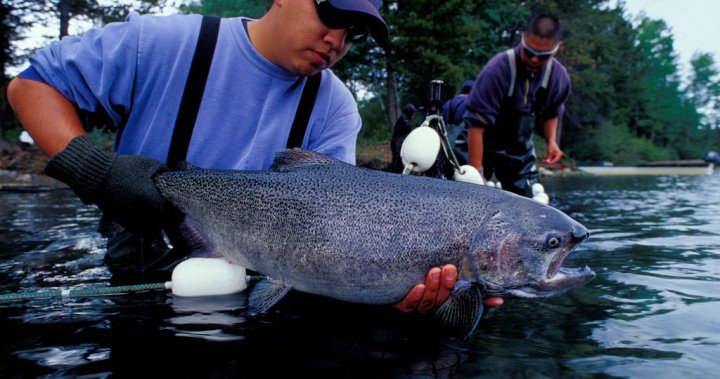
B.C. salmon, shellfish may soon become luxury of the rich, experts warn
Global News
Rising temperatures and heatwaves are threatening B.C.'s iconic fisheries, but embracing Indigenous knowledge could help illuminate the path forward.
Marine biologists in B.C. are sounding the alarm on declining salmon and shellfish stocks amid rising temperatures and worsening heatwaves in the Pacific Northwest. Experts warn that many of the local species B.C. takes pride in — namely salmon, mussels, and clams — may soon disappear from seafood menus across the province as human-caused climate change forces cold-water species to move north.
In their stead, marine life that prefer warmer water may replace them — like the Humboldt squid, whose native habitat stretches from Tierra del Fuego in South America up to California.
Gone may be the days when B.C. restaurants proudly proclaim they serve locally caught salmon. Fans of the fish may have to travel to Alaska to enjoy it — and sooner rather than later.
William Cheung, a marine biologist at UBC and Canada Research Chair in Ocean Sustainability and Global Change, said populations of salmon, a cold-water species, will reach crisis levels within the next 10 years. And when the supply of an in-demand product declines, price hikes are soon to follow.
“If sockeye salmon from B.C. waters continue to decline as we projected from our previous modelling work, what it means is that the price for locally caught salmon will increase,” Cheung told Global News.
“I think then, locally caught sockeye salmon will become a kind of luxury seafood product,” Cheung said.
“If we continue on our current path, I see that this is going to (happen) very soon. I think it may even be in this decade.”
A 2015 report by Vancity found that by 2050, the price of sockeye salmon may increase by more than 70 per cent per pound.











